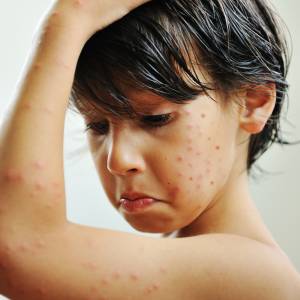New Case of Zika: All you need to know about Zika

What about it and should I be concerned?
What is Zika?
Prior to making headlines in Singapore in 2016, Zika was but a faraway threat which made its first appearance in Nigeria in 1954. It was only around May 2015 that the Zika virus made waves in Brazil as it caused a surge in brain defects among newborns. It has been spreading rapidly and reportedly affected other parts of South and North America and several islands in the Pacific. This has prompted the World Health Organization to declare the Zika virus an international public health emergency.
You can consider Zika the 2016 version of Dengue or Chikungunya as it’s spread by the same carriers – the Aedes mosquito – and sometimes cause victims to exhibit similar symptoms. Thankfully, fatality among adults is rare and only one in five infected persons is believed to develop symptoms.
Like Dengue, Chikungunya and general viral infections, Zika causes one to exhibit the following symptoms, if any at all: mild fever, conjunctivitis (red, sore eyes), headache, joint pain and sudden rashes.
As at the time of writing, there is no known vaccine or treatment available to reverse the effects of Zika on patients. While adults may be able to recover with plenty of rest and careful observation, there is no cure for babies with Zika-induced microcephaly – an infection linked to the development of unusually small heads and brain damage. The only way is to prevent oneself from being infected.
Implications of Zika
While the Zika virus is mostly transmitted by mosquitoes, cases of viral transmission through sexual intercourse have been reported in at least four countries. Live virus has been found in semen more than two months after symptoms of infection have disappeared. Scientists believe the prostate or testes can serve as a shelter for the Zika virus to evade the immune system.
Health officials generally advise pregnant women or women trying to become pregnant to avoid contact with semen from men who have visited areas where the Zika virus is transmitted. Women who are pregnant should use a condom, or abstain from intercourse until they give birth. This is not so much an issue for those based in Singapore as it is for people who have travelled to affected places.
How do I protect myself?
Health authorities recommend practicing the following, especially for pregnant women:
- If you have to stay outdoors for prolonged periods, wear long-sleeved clothing to avoid getting bitten by mosquitoes.
- Avoid wearing perfumes with fruity or floral fragrances as they tend to attract mosquitoes. Better yet, don’t put on any at all.
- Put up a bed net to protect yourself from getting bitten while you sleep. Double up your protection against mosquitoes by installing window screens that prevent them from entering your home.
- Apply repellent containing one of the active ingredients for protection against insects: DEET, picaridin, IR3535, oil of lemon eucalyptus, or para-menthane-diol. For the highest protection however, choose repellents that contain DEET. In Singapore, healthcare professionals advise expectant women to use repellents containing between ten to 20 percent concentration of DEET – no higher. This provides a decent four hours of protection without exposing one to the possibly harmful effects of the chemical.
- Avoid spraying repellent directly on the face or on exposed wounds as ingesting DEET may cause nausea, vomiting and abdominal pains, while inhaling it may give rise to breathing difficulties. Direct spraying on the face also often irritates the eyes. Instead, spray it onto palms and rub it on the face while making sure not to apply it too close to the eyes, nose and mouth.
- While insect repellents containing DEET have been tested and approved as safe for children, precaution should still be taken during application. Choose repellents with no more than ten to 30 percent concentration of DEET. Use lower concentration repellents if children will only be outdoors for an hour or so. Repellents containing DEET are generally not recommended for infants younger than two months.
- The best time to apply insect repellent is in the morning or evening. Studies show that the Aedes mosquito is most active during the day, with peak biting at dawn and dusk.
Home remedies to keep mozzies at bay
Essential oils
1. Citronella: To repel insects and in particular, mosquitoes, use two to three drops in a diffuser, burner or vaporizer near an open window.
2. Geranium: Apply five drops into a diffuser to repel mosquitoes.
Herbal candles
1. Citronella candles: Candles that include essential mosquito-repelling oils like citronella, cedarwood, lavender, lemongrass, and rosemary are said to have the effect of reducing mosquito infestation.
27 Jan 2018Maxine Loh